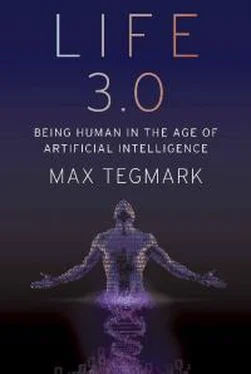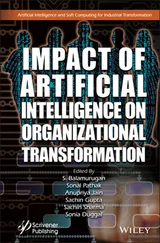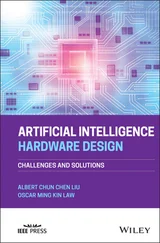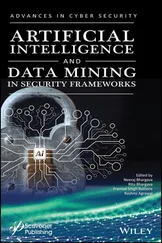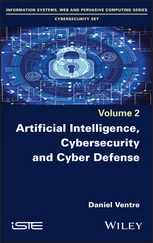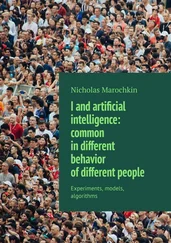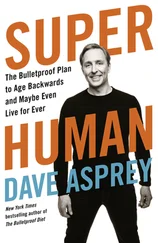Whereas malware targets whatever computer it can, hackers attack specific targets of interest—recent high-profile examples including Target, TJ Maxx, Sony Pictures, Ashley Madison, the Saudi oil company Aramco and the U.S. Democratic National Committee. Moreover, the loots appear to be getting ever more spectacular. Hackers stole 130 million credit card numbers and other account information from Heartland Payment Systems in 2008, and breached over a billion(!) Yahoo! email accounts in 2013.33 A 2014 hack of the U.S. Government’s Office of Personnel Management breached personnel records and job application information for over 21 million people, allegedly including employees with top security clearances and the fingerprints of undercover agents.
As a result, I roll my eyes whenever I read about some new system being allegedly 100% secure and unhackable. Yet “unhackable” is clearly what we need future AI systems to be before we put them in charge of, say, critical infrastructure or weapons systems, so the growing role of AI in society keeps raising the stakes for computer security. While some hacks exploit human gullibility or complex vulnerabilities in newly released software, others enable unauthorized login to remote computers by taking advantage of simple bugs that lingered unnoticed for an embarrassingly long time. The “Heartbleed” bug lasted from 2012 to 2014 in one of the most popular software libraries for secure communication between computers, and the “Bashdoor” bug was built into the very operating system of Unix computers from 1989 until 2014. This means that AI tools for improved verification and validation will improve security as well.
Unfortunately, better AI systems can also be used to find new vulnerabilities and perform more sophisticated hacks. Imagine, for example, that you one day get an unusually personalized “phishing” email attempting to persuade you to divulge personal information. It’s sent from your friend’s account by an AI who’s hacked it and is impersonating her, imitating her writing style based on an analysis of her other sent emails, and including lots of personal information about you from other sources. Might you fall for this? What if the phishing email appears to come from your credit card company and is followed up by a phone call from a friendly human voice that you can’t tell is AI-generated? In the ongoing computer-security arms race between offense and defense, there’s so far little indication that defense is winning.
Laws
We humans are social animals who subdued all other species and conquered Earth thanks to our ability to cooperate. We’ve developed laws to incentivize and facilitate cooperation, so if AI can improve our legal and governance systems, then it can enable us to cooperate more successfully than ever before, bringing out the very best in us. And there’s plenty of opportunity for improvement here, both in how our laws are applied and how they’re written, so let’s explore both in turn.
What are the first associations that come to your mind when you think about the court system in your country? If it’s lengthy delays, high costs and occasional injustice, then you’re not alone. Wouldn’t it be wonderful if your first thoughts were instead “efficiency” and “fairness”? Since the legal process can be abstractly viewed as a computation, inputting information about evidence and laws and outputting a decision, some scholars dream of fully automating it with robojudges: AI systems that tirelessly apply the same high legal standards to every judgment without succumbing to human errors such as bias, fatigue or lack of the latest knowledge.
Robojudges
Byron De La Beckwith Jr. was convicted in 1994 of assassinating civil rights leader Medgar Evers in 1963, but two separate all-white Mississippi juries had failed to convict him the year after the murder, even though the physical evidence was essentially the same.34 Alas, legal history is rife with judgments biased by skin color, gender, sexual orientation, religion, nationality and other factors. Robojudges could in principle ensure that, for the first time in history, everyone becomes truly equal under the law: they could be programmed to all be identical and to treat everyone equally, transparently applying the law in a truly unbiased fashion.
Robojudges could also eliminate human biases that are accidental rather than intentional. For example, a controversial 2012 study of Israeli judges claimed that they delivered significantly harsher verdicts when they were hungry: whereas they denied about 35% of parole cases right after breakfast, they denied over 85% right before lunch.35 Another shortcoming of human judges is that they may lack sufficient time to explore all details of a case. In contrast, robojudges can easily be copied, since they consist of little more than software, allowing all pending cases to be processed in parallel rather than in series, each case getting its own robojudge for as long as it takes. Finally, although it’s impossible for human judges to master all technical knowledge required for every possible case, from thorny patent disputes to murder mysteries hinging on the latest forensic science, future robojudges may have essentially unlimited memory and learning capacity.
One day, such robojudges may therefore be both more efficient and fairer, by virtue of being unbiased, competent and transparent. Their efficiency makes them fairer still: by speeding up the legal process and making it harder for savvy lawyers to skew the outcome, they could make it dramatically cheaper to get justice through the courts. This could greatly increase the chances of a cash-strapped individual or startup company prevailing against a billionaire or multinational corporation with an army of lawyers.
On the other hand, what if robojudges have bugs or get hacked? Both have already afflicted automatic voting machines, and when years behind bars or millions in the bank are at stake, the incentives for cyberattacks are greater still. Even if AI can be made robust enough for us to trust that a robojudge is using the legislated algorithm, will everybody feel that they understand its logical reasoning enough to respect its judgment? This challenge is exacerbated by the recent success of neural networks, which often outperform traditional easy-to-understand AI algorithms at the price of inscrutability. If defendants wish to know why they were convicted, shouldn’t they have the right to a better answer than “we trained the system on lots of data, and this is what it decided”? Moreover, recent studies have shown that if you train a deep neural learning system with massive amounts of prisoner data, it can predict who’s likely to return to crime (and should therefore be denied parole) better than human judges. But what if this system finds that recidivism is statistically linked to a prisoner’s sex or race—would this count as a sexist, racist robojudge that needs reprogramming? Indeed, a 2016 study argued that recidivism-prediction software used across the United States was biased against African Americans and had contributed to unfair sentencing.36 These are important questions that we all need to ponder and discuss to ensure that AI remains beneficial. We aren’t facing an all-or-nothing decision regarding robojudges, but rather a decision about the extent and speed with which we want to deploy AI in our legal system. Do we want human judges to have AI-based decision support systems, just like tomorrow’s medical doctors? Do we want to go further and have robojudge decisions that can be appealed to human judges, or do we want to go all the way and give even the final say to machines, even for death penalties?
Legal Controversies
So far, we’ve explored only the application of law; let us now turn to its content . There’s broad consensus that our laws need to evolve to keep pace with our technology. For example, the two programmers who created the aforementioned ILOVEYOU worm and caused billions of dollars in damages were acquitted of all charges and walked free because at that time, there were no laws against malware creation in the Philippines. Since the pace of technological progress appears to be accelerating, laws need to be updated ever more rapidly, and have a tendency to lag behind. Getting more tech-savvy people into law schools and governments is probably a smart move for society. But should AI-based decision support systems for voters and legislators ensue, followed by outright robo-legislators?
Читать дальше
